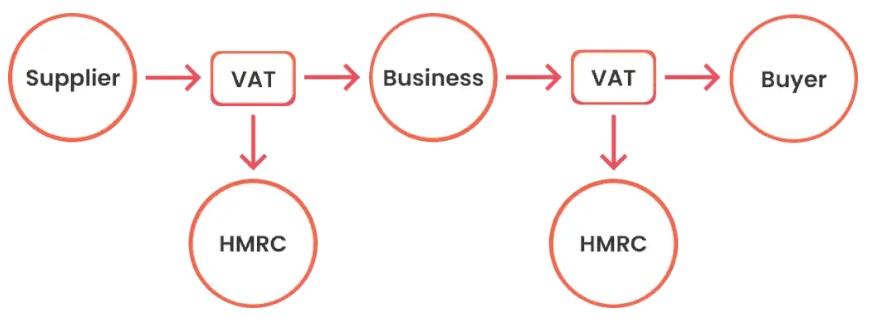Simplify & Scale Your Business with Expert Accounting, Admin Support, and Lead Generation — All in One Place
VAT Preparation & Submission for UK Small Businesses: A Complete Guide
Value Added Tax (VAT) is a significant part of the UK tax system. If you run a VAT-registered business, you’re required to charge this tax on most goods and services, which you must then report and pay to HMRC. Basically, you are collecting VAT on the Government’s behalf.
QUICKBOOKSTAX PREPRATIOINBOOKKEEPINGVAT PREPRATIONACCOUNTING
Anova Solution
8/5/2025


Understanding VAT
Understanding VAT is crucial for SMEs for several reasons:
Compliance with tax laws: Failure to understand and properly handle your VAT obligations can lead to legal issues, including non-compliance penalties. As a result, it’s vital to know when you’re required to register for VAT, how to file VAT returns, and how to reclaim VAT you’ve paid on business-related goods and services.
Cashflow management: VAT can significantly affect your SME’s bank balance. Knowing how to manage VAT effectively can help businesses maintain a healthy cashflow. There are different schemes available and picking the correct one can significantly improve cashflow.
Pricing: VAT-registered businesses need to understand how much VAT to charge on their products or services.
VAT thresholds and schemes: Learning about the different VAT schemes available to your business can help simplify the process.
International trade: If your business is involved in importing or exporting goods and services, understanding VAT is vital for international trade compliance.
Claiming VAT back: VAT-registered firms can recover VAT on many costs associated with running their business, which can reduce overall expenses.
Record-keeping and reporting: Proper record-keeping and timely VAT reporting are essential. SMEs must keep accurate records of all VAT-charged sales and purchases and file regular VAT returns using software compatible with Making Tax Digital (MTD)for VAT. Failure to do so can result in fines and complications with HMRC.
Making Tax Digital (MTD)
MTD for VAT was introduced in 2019 to make it easier for businesses to get their VAT right and keep on top of their affairs. All VAT-registered businesses are now required to comply with these rules.
Under MTD for VAT, businesses and individuals are required to use HMRC-approved digital software to keep track of their tax records. Tax returns are submitted to HMRC using compatible software instead of filling out paper forms or even using the older VAT return portal online.
The VAT basics
What Is VAT & When Do You Need to Register?
Value Added Tax (VAT) is charged on goods and services in the UK. Most small businesses must register once turnover exceeds £85,000 in 12 months. After registration, HMRC issues a VAT number and you must submit regular VAT returns, usually every quarter.
Record-Keeping and HMRC Compliance
Proper bookkeeping is essential—keep invoices, receipts, sales and purchase data, for at least six years, per HMRC rules (VAT Notice 700/21).
MTD-compliant digital records must be maintained. Software like Xero, QuickBooks, or Sage helps automate VAT calculation and linking records for HMRC-approved submission.
Choosing the Right VAT Accounting Scheme
Standard VAT Accounting: Calculate output VAT vs input VAT.
Flat Rate Scheme: For turnover ≤£150,000; pay a fixed percentage, simpler but limited input VAT claims.
Cash Accounting Scheme: Pay VAT based on payments received and made.
Annual Accounting Scheme: Submit one return per year with interim payments (up to £1.35m turnover).
QuickBooks, Xero & Sage: VAT Submission Tools
Xero VAT: Cloud-based filing, auto VAT box fills, reconciles receipts.
QuickBooks VAT: HMRC-compliant returns, connects to banks for auto bookkeeping.
Sage VAT Submission: Reports VAT liability, integrates directly with HMRC.
We also offer manual VAT preparation, proof-checked by our team before submission.
Preparing Your VAT ReturnCalculate output VAT on sales.
Calculate input VAT on expenses.
Apply adjustments or corrections.
Total net VAT payable or reclaimable.
Review return carefully to avoid errors.
Filing & Payment Deadlines
VAT returns must be submitted within 1 calendar month + 7 days after the period ends. Payment is due at the same time. Under MTD, digital filing via compatible software is required.
Late submission or payment can trigger penalties, including a £200 surcharge and interest.
Common Mistakes & How We Help You Avoid Them
Late filing/payment: We send reminders and setup direct debits.
Error-prone VAT calculations: We run compliance checks.
Poor record-keeping: We assist with MTD-compliant software.
Wrong VAT scheme: We analyse and recommend the best scheme.
Why Choose Us for VAT Services?
HMRC-registered accounting firm for small business VAT.
Experts in QuickBooks, Xero, Sage, and MTD compliance.
Personalised VAT strategy to improve cash-flow.
Manual review of calculations to reduce risk of fines.
Book Your Free VAT Consultation
Ready to streamline VAT and reduceerrors?
Contact us today for a free VAT review, software setup, or bookkeeping audit
Services
Accounting & Bookkeeping
Get in Touch
+1 270 818 7417
© 2025 ANOVASOLUTION® ALL Rights Reserved
Virtual Assistant Services
Lead Generation & Resourcing


